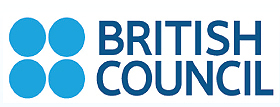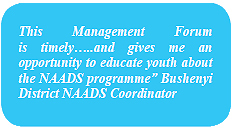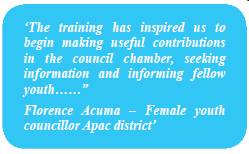Resposibilities of the EU parliament-European Day Supplement
Together with the Council of the European Union (the Council) and the Commission, it exercises the legislative function of the EU and it has been described as one of the most powerful legislatures in the world.
By Vision Reporter
Together with the Council of the European Union (the Council) and the Commission, it exercises the legislative function of the EU and it has been described as one of the most powerful legislatures in the world. The European Parliament is the only directly-elected body of the EU.
The 754 Members of the European Parliament are there to represent the citizens of member countries.
They are elected once every five years by voters right across the 27 Member States of the European Union on behalf of its 500 million citizens.
About 754 members of the European Parliament serve the second largest democratic electorate in the world, after India and the largest trans-national democratic electorate in the world.
It is the EU’s main law-making institutions, along with the Council of the European Union. The number of MEPs for each country is roughly in proportion to its population. Under the Lisbon Treaty, no country can have fewer than six or more than 96 MEPs.
The current numbers in the Parliament were set. However, this was before the coming into force of the treaty. The numbers will be adjusted for the next mandate of the European Parliament. MEPs are grouped by political affiliation, not by nationality.
The European Parliament has three main roles; debating and passing European laws. The Council scrutinises other EU institutions, particularly the Commission, to make sure they are working democratically debating and adopting the EU’s budget, with the Council.
In many areas, such as consumer protection and the environment, Parliament works together with the Council (representing national governments) to decide on the content of EU laws and officially adopt them. This process is called Ordinary legislative procedure.
Under the Lisbon Treaty, the range of policies covered by the new ordinary legislative procedure has increased, giving Parliament more power to influence the content of laws in areas including agriculture, energy policy, and immigration and EU funds.
Parliament must also give its permission for other important decisions, such as allowing new countries to join the EU.
Other duties
Parliament exercises influence over other European institutions in several ways. When a new Commission is appointed, its 27 members, one from each EU country cannot take up office until Parliament has approved them. If the Members of the European Parliament disapprove of a nominee, they can reject the entire slate.
Parliament can also call on the Commission to resign during its period in office. This is called a ‘motion of censure’. Parliament keeps check on the Commission by examining reports it produces and by questioning Commissioners. Its committees play an important part here. MEPs look at petitions from citizens in member countries and sets up committees of inquiry. When national leaders meet for European Council summits, Parliament gives its opinion on the topics on the agenda.
Parliament adopts the EU’s annual budget with the Council of the European Union. Parliament has a committee that monitors how the budget is spent and every year passes judgement on the Commission’s handling of the previous year’s budget.
The European Parliament has three places of work. These are Brussels (Belgium), Luxembourg and Strasbourg (France). Luxembourg is home to the administrative offices (the ‘General Secretariat’). Meetings of the whole Parliament (plenary sessions) take place in Strasbourg and in Brussels. Committee meetings are also held in Brussels.
British Council and Uganda Youth Network are proud to celebrate Europe Day About the British CouncilWe build trust and understanding between people worldwide by enabling them to share ideas and knowledge. We call this cultural relations.About the “Ours by Right” projectCo-funded by the European Union (EU), British Council in partnership with Ugandan Youth Network (UYONET) has begun this two year project aimed at strengthening meaningful participation of young people in democratic governance.
About the British CouncilWe build trust and understanding between people worldwide by enabling them to share ideas and knowledge. We call this cultural relations.About the “Ours by Right” projectCo-funded by the European Union (EU), British Council in partnership with Ugandan Youth Network (UYONET) has begun this two year project aimed at strengthening meaningful participation of young people in democratic governance.
The project is implemented in the districts of Apac, Bushenyi, Nebbi and Pallisa.Objectives of the project. The overall objective of the project is to contribute to strengthening accountability in districts in Uganda through promoting and enhancing the meaningful participation of youth and youth leaders in the democratic process. Its specific objectives are:
overall objective of the project is to contribute to strengthening accountability in districts in Uganda through promoting and enhancing the meaningful participation of youth and youth leaders in the democratic process. Its specific objectives are:
1. To enhance awareness and knowledge of youth councillors in the four districts about human rights, governance processes, accountable leadership and the workings of a multi-party democracy in particular.
 2. To increase the capacity of 16 youth civil society organisations(CSOs) in the four districts for better advocacy of their rights and more effective participation in monitoring democratic and governance processes
2. To increase the capacity of 16 youth civil society organisations(CSOs) in the four districts for better advocacy of their rights and more effective participation in monitoring democratic and governance processes
3. To promote greater accountability of policy makers and political leaders at district and national level to the rights and development priorities of the youth.
4. To strengthen the institutional and coordination capacity of UYONET
Progress of the project
The project is now well established in the four districts, with a strong project management unit established in Kampala to coordinate activities. Training needs analysis has been conducted for youth councillors and youth CSOs and programmes have been put into practice.
Kampala to coordinate activities. Training needs analysis has been conducted for youth councillors and youth CSOs and programmes have been put into practice.
111 youth councillors have been trained and have shared their experience with over 1000 young people in the districts they serve. Each councillor has a personal action plan to enable measurement of change and impact over the course of the project. A number of the councillors have formed associations as a means of being held accountable for their own actions.
Management Forums have provided a platform for youth leaders and district officials to interact and engage in dialogue, in some instances for the first time. Increasing levels of trust has resulted in more information on resources and programmes available to youth groups.
